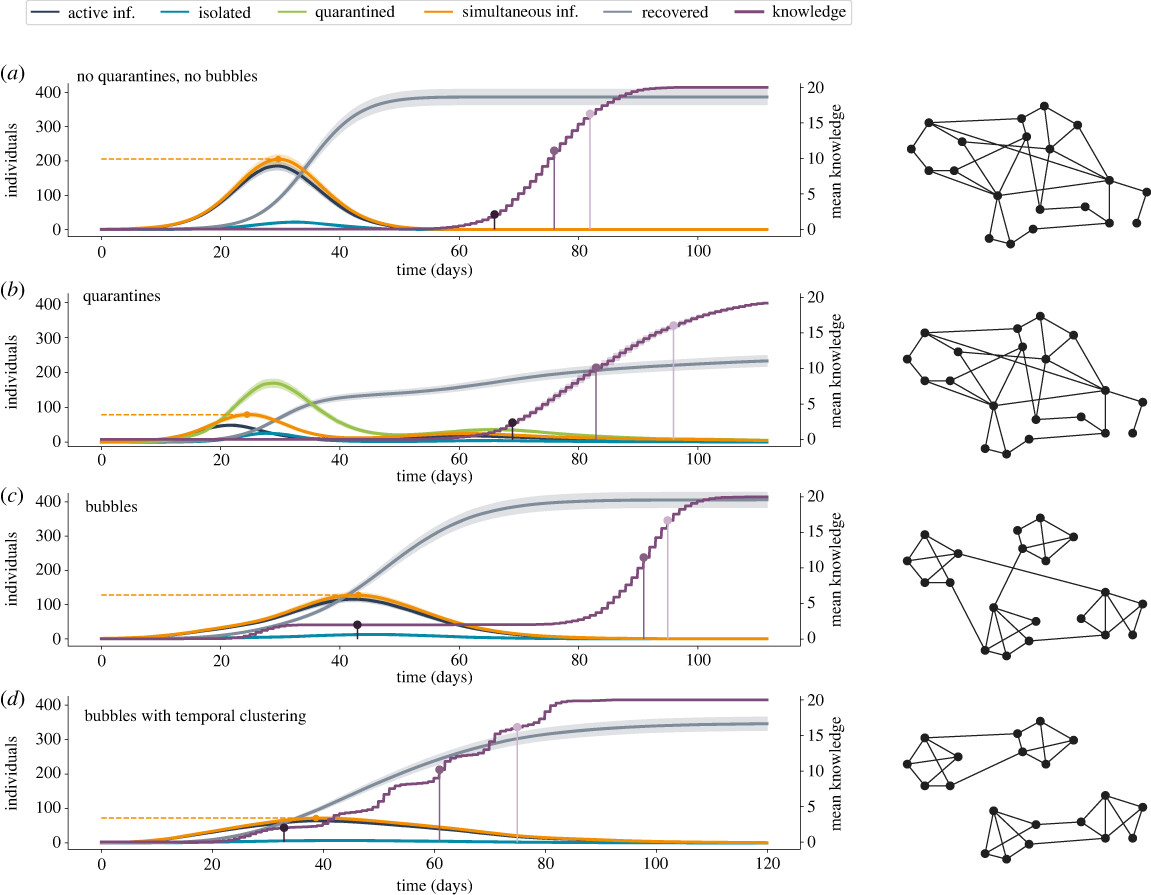Temporal clustering of social interactions trades-off disease spreading and knowledge diffusion

Abstract
Non-pharmaceutical measures such as preventive quarantines, remote working, school and workplace closures, lockdowns, etc. have shown effectiveness from an epidemic control perspective; however, they have also significant negative consequences on social life and relationships, work routines and community engagement. In particular, complex ideas, work and school collaborations, innovative discoveries and resilient norms formation and maintenance, which often require face-to-face interactions of two or more parties to be developed and synergically coordinated, are particularly affected. In this study, we propose an alternative hybrid solution that balances the slowdown of epidemic diffusion with the preservation of face-to-face interactions, that we test simulating a disease and a knowledge spreading simultaneously on a network of contacts. Our approach involves a two-step partitioning of the population. First, we tune the level of node clustering, creating ‘social bubbles’ with increased contacts within each bubble and fewer outside, while maintaining the average number of contacts in each network. Second, we tune the level of temporal clustering by pairing, for a certain time interval, nodes from specific social bubbles. Our results demonstrate that a hybrid approach can achieve better trade-offs between epidemic control and complex knowledge diffusion. The versatility of our model enables tuning and refining clustering levels to optimally achieve the desired trade-off, based on the potentially changing characteristics of a disease or knowledge diffusion process.
Citation
Temporal clustering of social interactions trades-off disease spreading and knowledge diffusionCencetti, Giulia and Lucchini, Lorenzo and Santin, Gabriele and Battiston, Federico and Moro, Esteban and Pentland, Alex and Lepri, Bruno
Journal of The Royal Society Interface (2024) [Full Text]